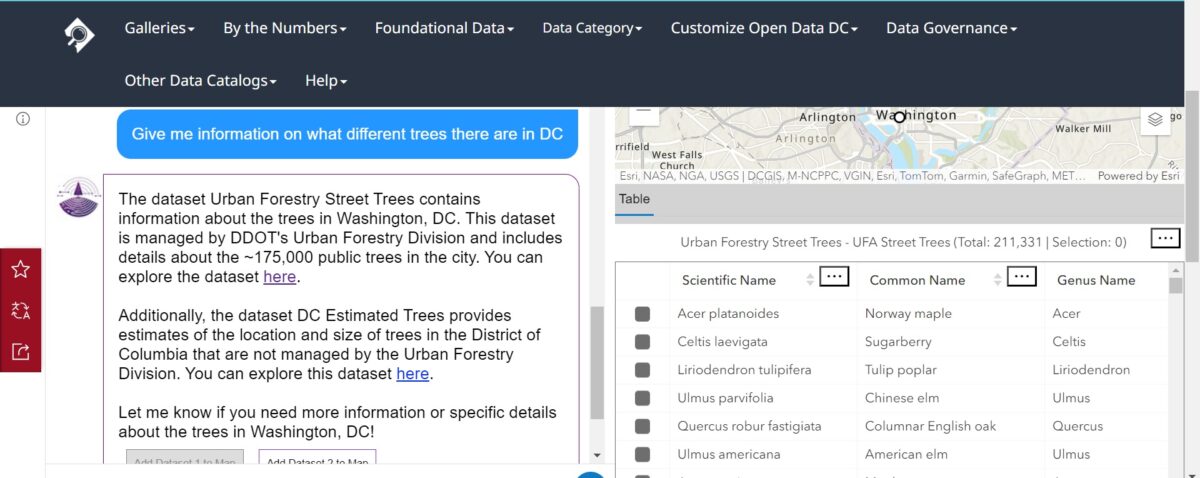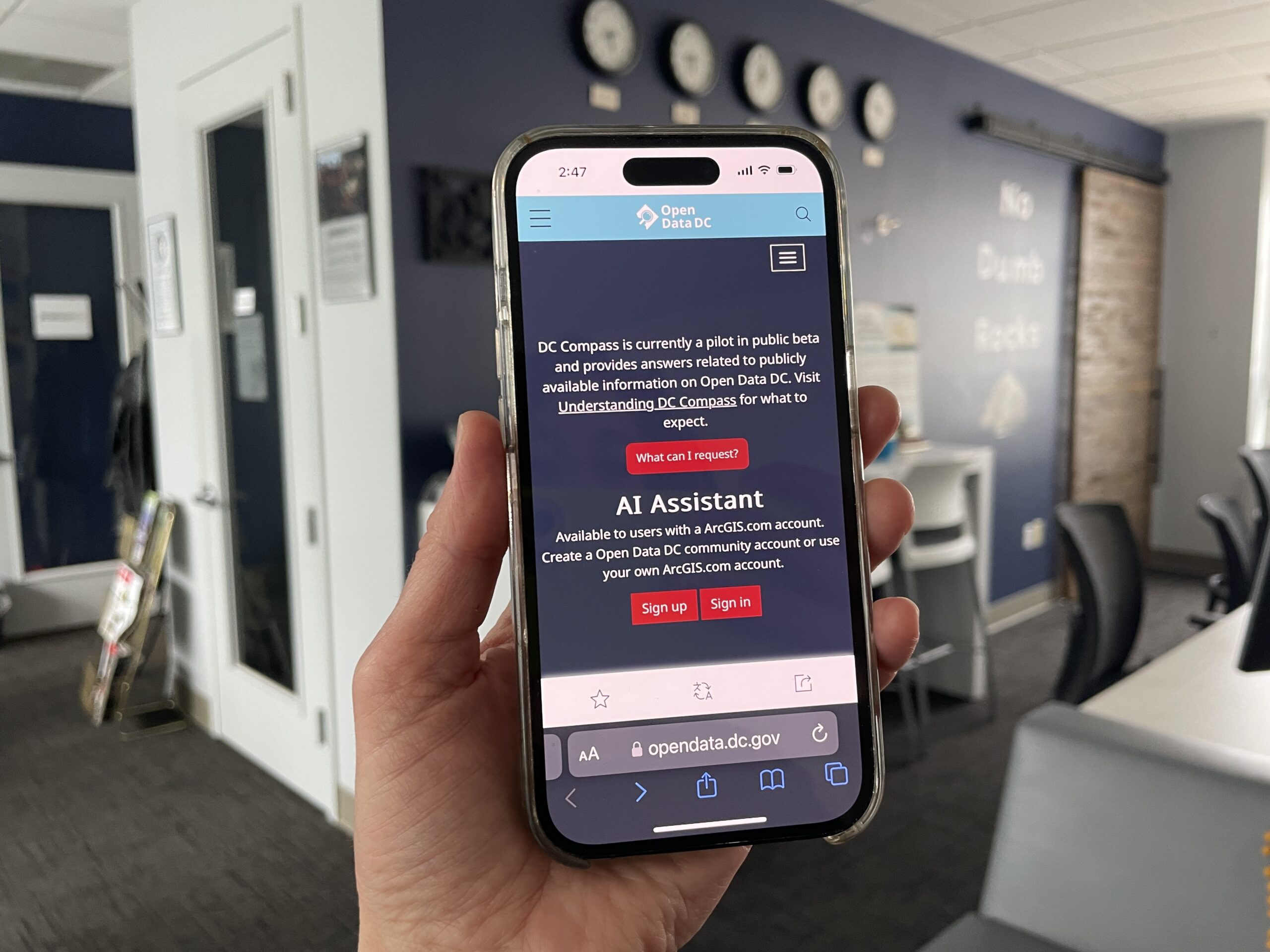In a move echoing local governments’ increasing attention toward generative artificial intelligence across the country, the nation’s capital now aims to make navigating its open data easier through a new public beta pilot.
DC Compass, launched in March, uses generative AI to answer user questions and create maps from open data sets, ranging from the district’s population to what different trees are planted in the city. The Office of the Chief Technology Officer (OCTO) partnered with the geographic information system (GIS) technology company Esri, which has an office in Vienna, Virginia, to create the new tool.
This debut follows Mayor Muriel Bowser’s signing of DC’s AI Values and Strategic Plan in February. The order requires agencies to assess if using AI is in alignment with the values it sets forth, including that there’s a clear benefit to people; a plan for “meaningful accountability” for the tool; and transparency, sustainability, privacy and equity at the forefront of deployment.
These values are key when launching something like DC Compass, said Michael Rupert, the interim chief technology officer for digital services at the Office of the Chief Technology Officer.
“The way Mayor Bowser rolled out the mayor’s order and this value statement, I think gives residents and businesses a little more comfort that we aren’t just writing a check and seeing what happens,” Rupert said. “That we’re actually methodically going about it in a responsible way, both morally and fiscally.”

The district’s government is also privately piloting other AI programs within some agencies. One of those involves translation services for teachers when crafting their lesson plans. The tool will translate the lesson plan; educators can also record themselves giving a lesson, and the AI tool will dub it in the selected language.
At this time, the government has spent less than $400,000 on AI development, Rupert said.
“We didn’t want to just throw a bunch of money at it,” Rupert said. “We wanted to make sure we understood it and had a true roadmap and values so we weren’t just turning policy documents into pirate speak.”
Mayor Bowser’s proposed budget for Fiscal Year 2025, released on Wednesday, allocates $1.7 million for further developing strategies and different AI tools for agencies to use.
Developing and using the program
The district approached Esri, which previously worked with DC government agencies on other projects, with this idea in May of 2023. The company was so on board that it built the platform at no cost.
The platform was tested privately for about six months before its public launch.
“We had tested it and gotten to a point where we were repeating results,” Rupert said. “So we wanted to see what that looks like on a much bigger scale.”
DC Compass uses a large language model (LLM) and is only used for “reasoning” and language translation. It’s not like a traditional chatbot, Rupert explained. It’s purely taken from open data sets in DC — about 2,000 sets — and you need to work with the tool and its limitations.
For example, Rupert noted that he’s seen issues when people get very specific from the start of using the platform, or switching between different subjects too fast. For this, Rupert recommends telling the tool, “I have a totally different question to ask you.”
Overall, the goal is to take a lot of information and break it down so it’s digestible for the average person.
“It’s making this sort of wonky, open data universe, the data scientist universe, and making it super accessible to the everyday person,” Rupert said.
You can help make DC Compass better
Now, the OCTO wants your feedback. There are constraints to the tool, and that’s no secret — an entire section of its website outlines the restrictions. Users are encouraged to use DC Compass as a tool, not a replacement.
The success of DC Compass will be measured through consumer feedback and the number of visits to the site. How long this public pilot will last is based on this feedback, and it’s unclear how long this will take as of now.
“We’re excited that we get to be the guinea pigs and bring the benefit of this new technology,” Rupert said. “I think that really just depends on the type of feedback and the type of lift to get it to that place that, again, melds expectations with reality.”







